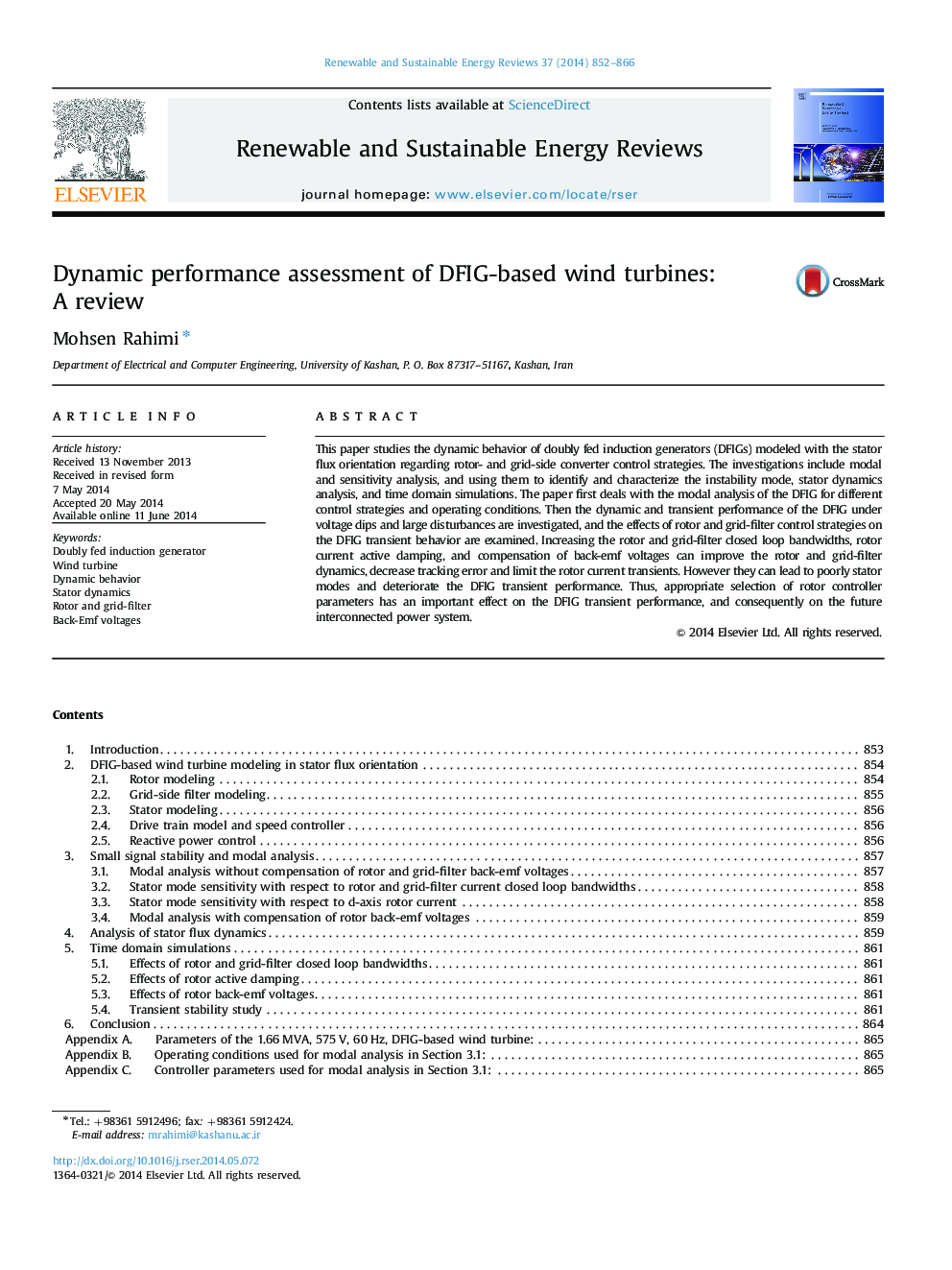| Article ID | Journal | Published Year | Pages | File Type |
|---|---|---|---|---|
| 8119807 | Renewable and Sustainable Energy Reviews | 2014 | 15 Pages |
Abstract
This paper studies the dynamic behavior of doubly fed induction generators (DFIGs) modeled with the stator flux orientation regarding rotor- and grid-side converter control strategies. The investigations include modal and sensitivity analysis, and using them to identify and characterize the instability mode, stator dynamics analysis, and time domain simulations. The paper first deals with the modal analysis of the DFIG for different control strategies and operating conditions. Then the dynamic and transient performance of the DFIG under voltage dips and large disturbances are investigated, and the effects of rotor and grid-filter control strategies on the DFIG transient behavior are examined. Increasing the rotor and grid-filter closed loop bandwidths, rotor current active damping, and compensation of back-emf voltages can improve the rotor and grid-filter dynamics, decrease tracking error and limit the rotor current transients. However they can lead to poorly stator modes and deteriorate the DFIG transient performance. Thus, appropriate selection of rotor controller parameters has an important effect on the DFIG transient performance, and consequently on the future interconnected power system.
Related Topics
Physical Sciences and Engineering
Energy
Renewable Energy, Sustainability and the Environment
Authors
Mohsen Rahimi,
